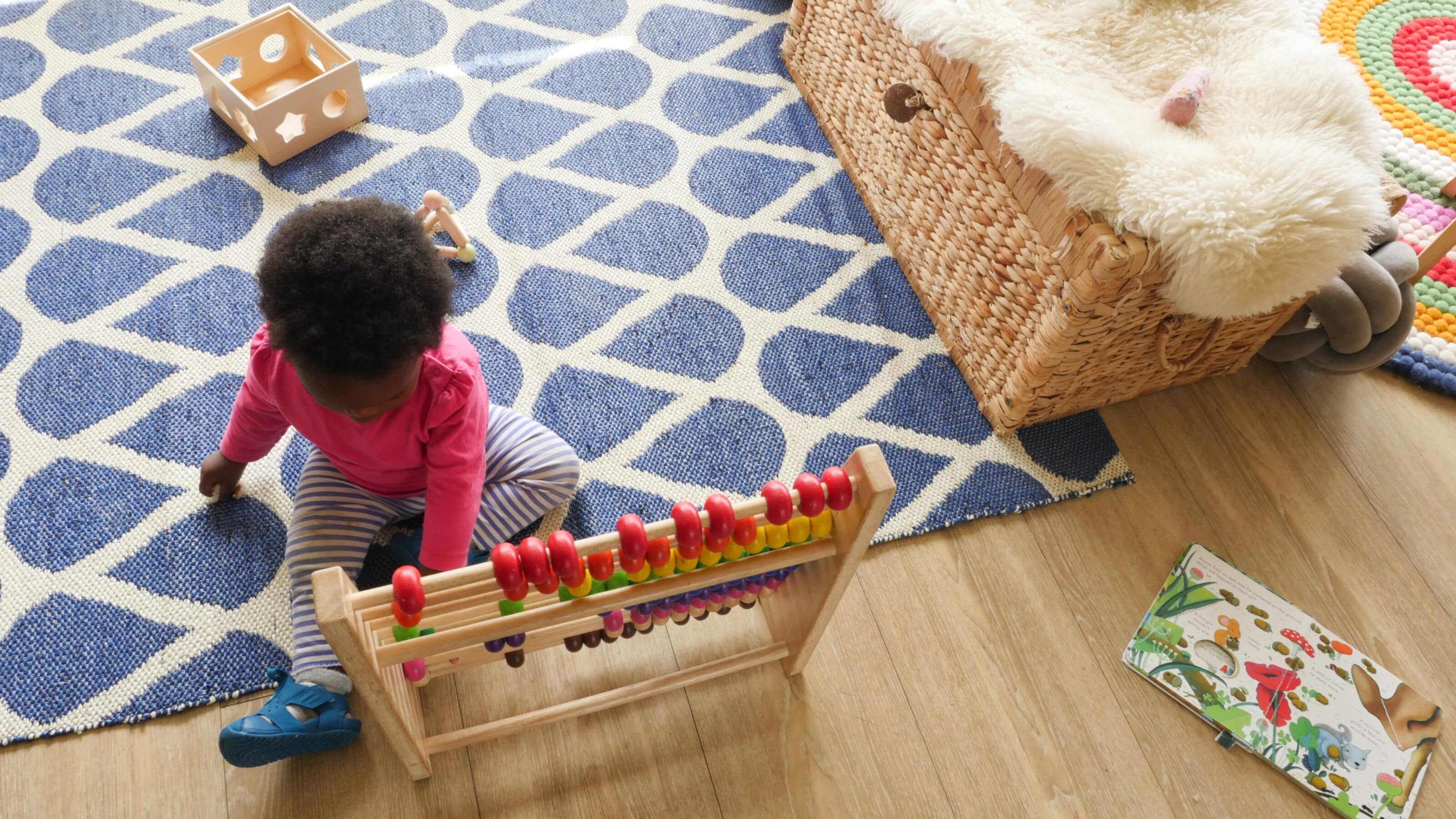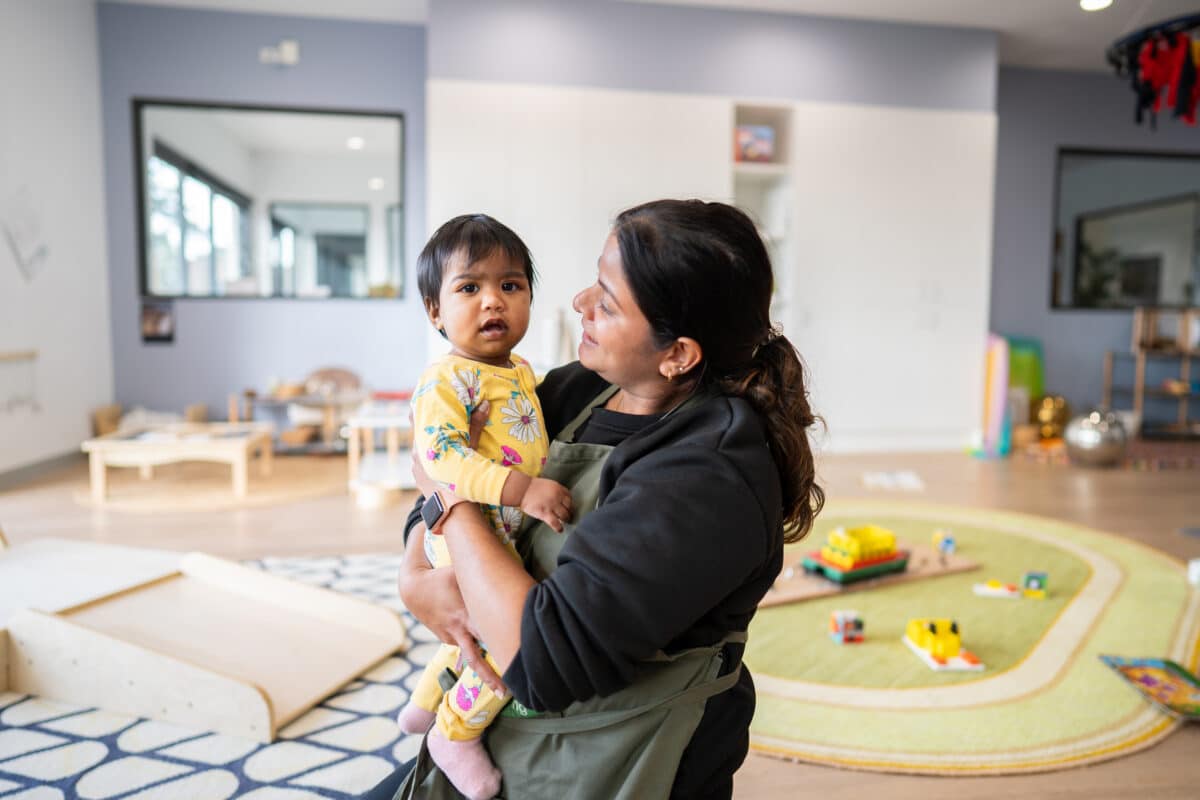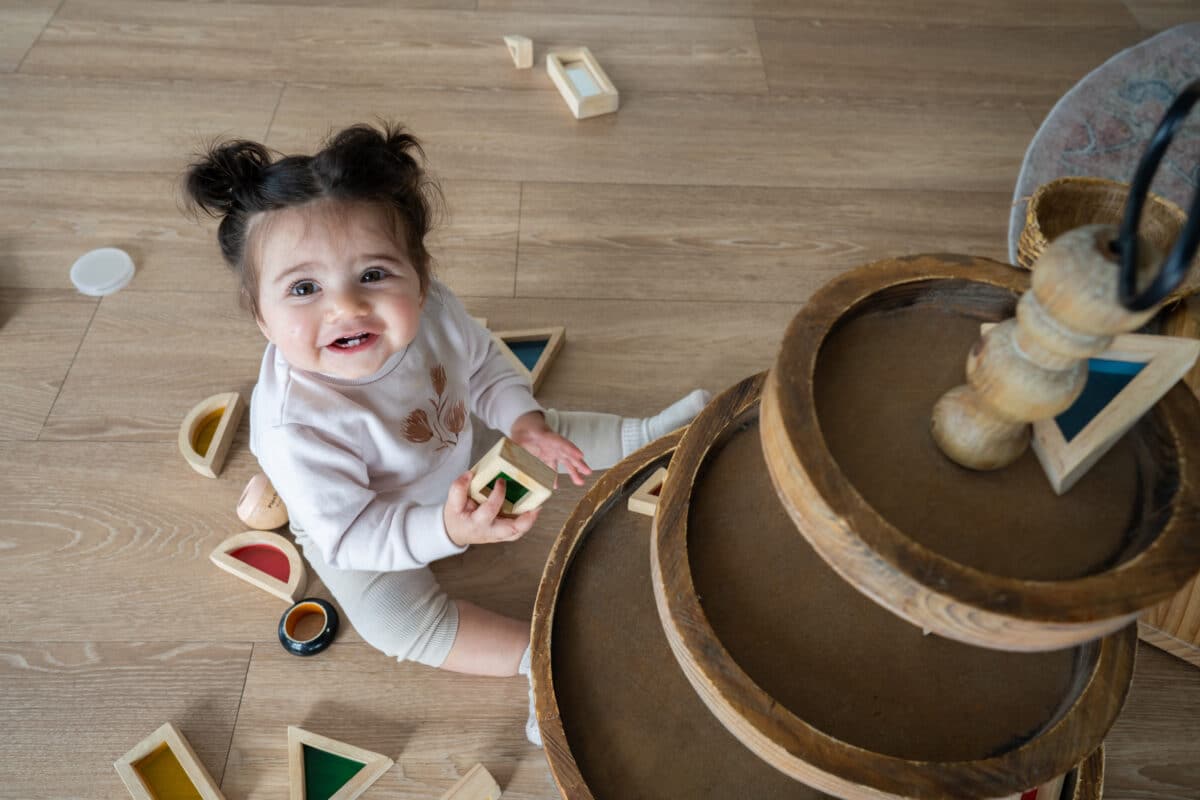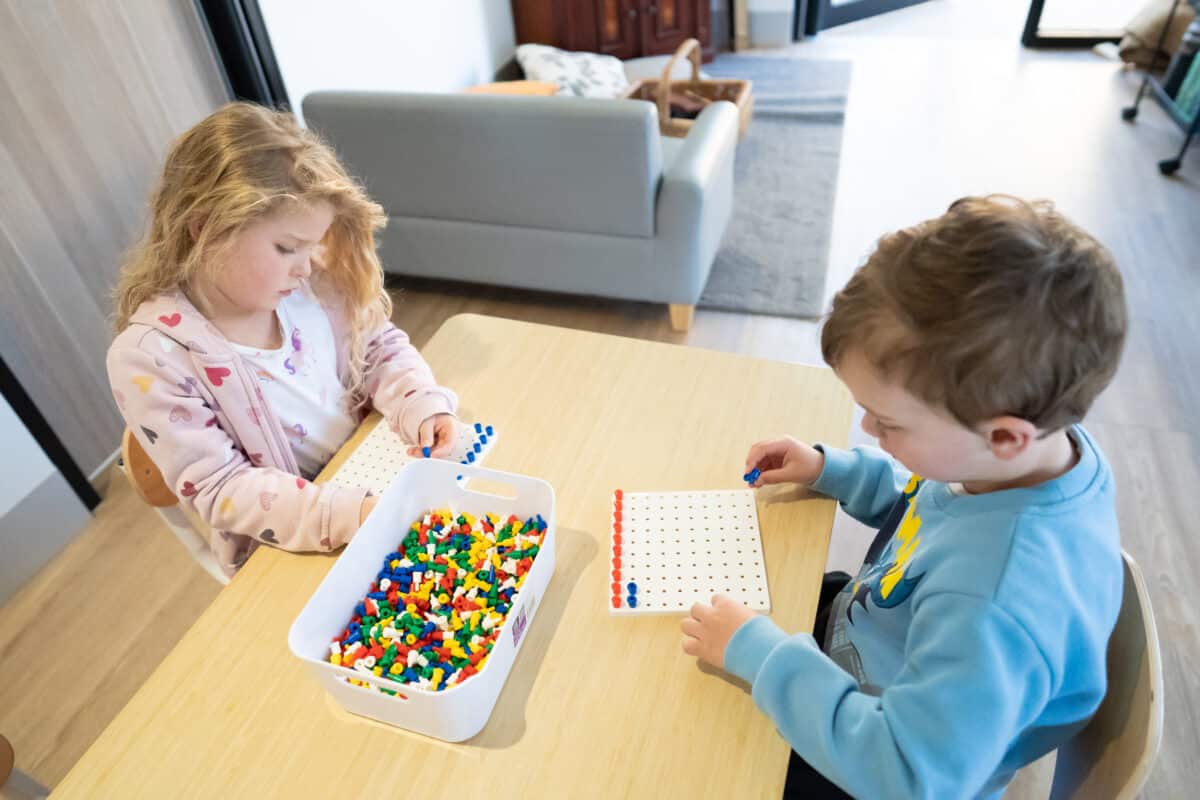The First 1000 Days of Life: Why They’re So Important
11 July 2023

What are the first 1000 days of human life? And how can you best prepare your child through those exciting early years? Read on for our full breakdown of this precious early childhood journey 👇
The first 1000 days of life, from conception until their second birthday, sets the foundation for your child’s emotional, physical, and academic development. As you can imagine, getting them right is essential. It’s a time full of developmental milestones, precious memories and yes – lots of nappy changes.
In this article, we outline what to expect during your child’s first 1000 days to help you prepare for this incredible early childhood journey.
Prenatal Care and Development
Prenatal care is everything, and we’re lucky in Australia to have free public healthcare and a range of comprehensive private health insurance options. It goes without saying that it’s vital to receive regular medical check-ups, eat a balanced diet, take prenatal vitamins (particularly calcium, vitamin D and folic acid), and check a list of DO’s and DON’Ts to best support your baby’s growth.
In the first months after conception, your baby’s organs develop rapidly and you’ll feel their first flutters of movement sometime between week 16 and 24!
Additionally, studies have suggested that playing soothing music may aid in cognitive development even in the womb. Just make sure the volume is below 50 decibels, which his roughly the same volume as a washing machine.

Birth and the Newborn Phase
The moment your baby arrives is a rush of emotion and relief. In the early days, you and your baby will mostly be getting to know each other. Expect round-the-clock feeding, checking, nappy changes, and lots of cuddles!
Moreover, regular postnatal checks with your GP are a must. Better Health Victoria recommends a check-up at around the six to eight week mark. This is also a great time to raise any questions or concerns.
Additionally, the Victorian Maternal and Child Health (MCH) Service is a free universal primary health service for all Victorian families with children that offers regular check-ups from birth all the way up to school age. This includes:
- Maternal and child health service resources
- Advice for sleep and settling
- Early Parenting Centres
- Aboriginal Maternal and Child Health Aboriginal-led MCH services
- Baby Bundle
While it can be easy to be overwhelmed at this early stage of development, try and enjoy these precious moments of bonding. Importantly, remember to reach out for support and guidance from loved ones or healthcare professionals if needed.
Infant Milestones
As your child passes through the first 1000 days, it’ll feel like they surpass milestones every other week. From their first smile to rolling over, sitting up, and eventually crawling, each accomplishment marks their progression physically and psychologically.
Some milestones to anticipate include:
- Birth to 3 months – lifting their head when lying on your stomach
- 4 to 6 months – rolling over, clapping, babbling
- 7 to 9 months – sitting without support
- 10 to 18 months – taking their first steps
- 13 to 18 months – engaging in pretend play, first words
- 19 to 24 months – sorting shapes and colours, identifying objects, passing things
Keep in mind that these aren’t strict timeframes. Each child develops at their own pace and may surpass these milestones well before or after these windows. During this time, you can encourage their development through tummy time, talking to them, and introducing age-appropriate toys and activities.

Nutrition and Weaning
Nutrition plays a vital role in your child’s growth and development during the first 1000 days. Breast milk, or an appropriate infant formula, is essential for the first six months. Thereafter, you can gradually transition to age-appropriate foods while continuing to breastfeed or offer formula for 2 years or beyond.
Solid foods can be introduced from around six months, which opens a whole new world of tastes, textures, and smells.
Just remember to be patient as your baby explores different foods and adapts to a varied diet. If you have any concerns, be sure to consult your GP or paediatrician regarding specific dietary needs, allergens, or intolerances.
Language and Cognitive Development
During the first 1000 days, your baby’s brain is rapidly developing, laying the foundation for future learning and communication. Some activities to help your child from around the one year mark include:
- Lots of talking and singing
- Reading books together
- Messy play
- Puzzles
- Art
And it doesn’t always have to be so structured. Something as simple as responding to your child’s babbles and engaging verbally promotes their understanding of the world around them (and makes for a great time!). Try to enjoy these moments of discovery together.

Social and Emotional Development
As your baby grows physically between the one and two year mark, so do their social and emotional skills. Responding to their cues, providing a secure and loving environment, and fostering social interactions with other children nurtures their emotional well-being.
Likewise, be sure to celebrate their achievements verbally and enthusiastically. This not only provides comfort during times of frustration or distress, but rewards children’s curiosity and insatiable hunger to discover and explore.
For parents that are returning to work during the first 1000 days, be assured that Explorers Early Learning offers opportunities for further social and cognitive development.
Overall, the first 1000 days of a child’s life is a time of immense growth and development. From prenatal care to their second birthday, this period shapes their future health, well-being, and development from the cot all the way to adulthood.
Embrace each milestone, enjoy the precious moments, and seek support when needed. Remember, every child is unique, so follow your instincts and trust your best judgement – no one knows your child better than you!
🍃 To tour one of our beautiful Centres, please click here. Otherwise, check out our website to register your interest at Explorers Early Learning today!